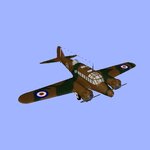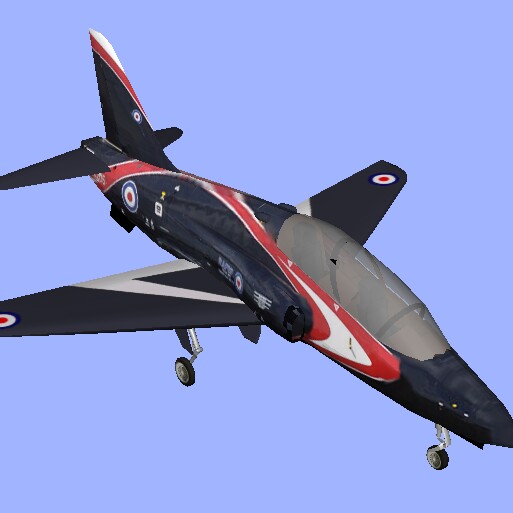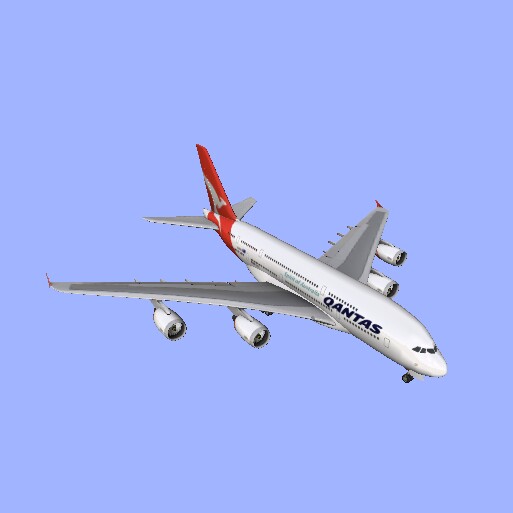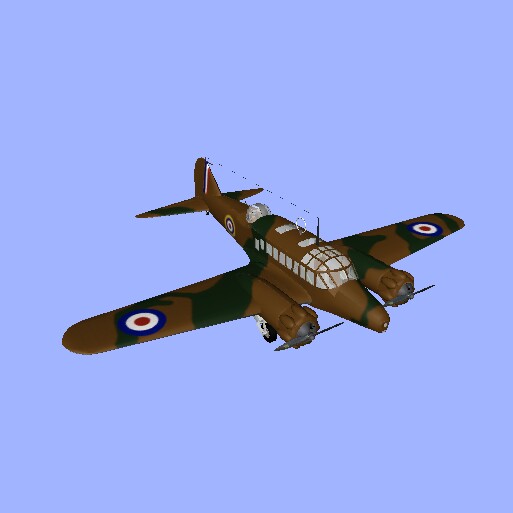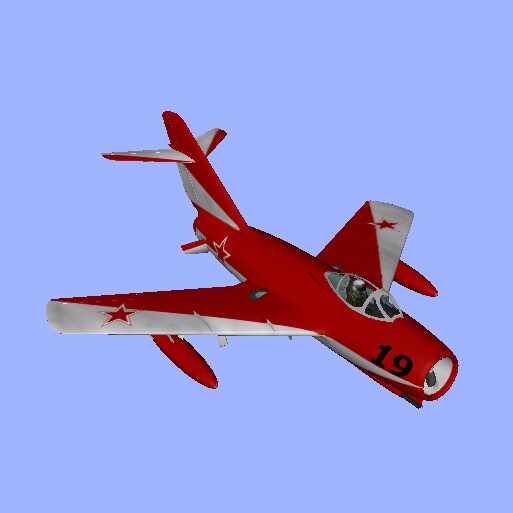This is a 3S4P brushless motor powered variant of herc40's gorgeous Avro Anson MK1. Performance of the model, with two Turnigy SK42- 40 750 brushless motors turning the same 16 x 10, two-bladed propellers as the original EA, is almost identical using the battery pack described here.
The battery pack comprises a total of twelve 2500mAh Lipo cells, six for each motor, giving a total capacity of 10,000 mAh at a nominal 12.6V, with a current drain of no more than 50A (once the motors have 'unloaded', more usually somewhere between 25A and 35A). This configuaration enables model to fly for 10 mins at full throttle, compared to 8 mins with the original EA's 710 cc (24 oz) tank and a pair of OS FP40's consuming fuel at a rate of 44 cc per min ( 1½ oz per min). Don't be fooled by RF's Nav Guide display; for some reason it only shows consumption as if there was a single engine (well, that's the case with 4.5), but not for electric motors; it displays remaining battery capacity correctly.
The AUW is lower too; 4.62 kg (10.2 lb) compared to 5.13 kg (11.3lb). There is sure to be room for improvement; as it is, this AV is using as many items from the original EA as possible, no 'electric' props or anything like that, or attempts to maximise efficiency.
Performance is rather more lively with a 4S4P pack of sixteen 2500mAh cells, even though the AUW rises to 4.9 kg (10.8 lb), which is still less than the original EA.
Many, many thanks to Herc40, Junkboy999 and Willsonman, and all who had a hand in creating the original EA: avro_EA.
I have thoroughly enjoyed myself coming up with this AV. I hope you will all enjoy flying it.
Nigel_B
History: This was the first low-wing monoplane used by the RAF, and the first operational aircraft with retractable (manually) landing gear. Canadian built Mk 2s were even used by the U.S. Army as AT-20 crew trainers. Pitifully slow and weakly armed even with two engines should one of the Armstrong Siddeley Cheetah IX radials fail she had little chance of staying in the air on the remaining engine. Even with these faults her crews loved flying her claiming that she was not only sturdy but reliable and pleasant to fly.
The battery pack comprises a total of twelve 2500mAh Lipo cells, six for each motor, giving a total capacity of 10,000 mAh at a nominal 12.6V, with a current drain of no more than 50A (once the motors have 'unloaded', more usually somewhere between 25A and 35A). This configuaration enables model to fly for 10 mins at full throttle, compared to 8 mins with the original EA's 710 cc (24 oz) tank and a pair of OS FP40's consuming fuel at a rate of 44 cc per min ( 1½ oz per min). Don't be fooled by RF's Nav Guide display; for some reason it only shows consumption as if there was a single engine (well, that's the case with 4.5), but not for electric motors; it displays remaining battery capacity correctly.
The AUW is lower too; 4.62 kg (10.2 lb) compared to 5.13 kg (11.3lb). There is sure to be room for improvement; as it is, this AV is using as many items from the original EA as possible, no 'electric' props or anything like that, or attempts to maximise efficiency.
Performance is rather more lively with a 4S4P pack of sixteen 2500mAh cells, even though the AUW rises to 4.9 kg (10.8 lb), which is still less than the original EA.
Many, many thanks to Herc40, Junkboy999 and Willsonman, and all who had a hand in creating the original EA: avro_EA.
I have thoroughly enjoyed myself coming up with this AV. I hope you will all enjoy flying it.
Nigel_B
History: This was the first low-wing monoplane used by the RAF, and the first operational aircraft with retractable (manually) landing gear. Canadian built Mk 2s were even used by the U.S. Army as AT-20 crew trainers. Pitifully slow and weakly armed even with two engines should one of the Armstrong Siddeley Cheetah IX radials fail she had little chance of staying in the air on the remaining engine. Even with these faults her crews loved flying her claiming that she was not only sturdy but reliable and pleasant to fly.

